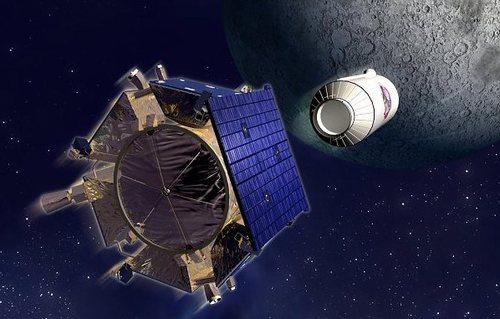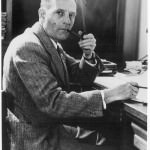[/caption]
I had the chance to interview LCROSS principal investigator Anthony Colaprete about the latest findings released from the lunar impact of the spacecraft a year ago, and in addition to the article we posted here on Universe Today, I also did a podcast for the NASA Lunar Science Institute. If you would like to actually “hear” from Colaprete, you can listen to the podcast on the NLSI website, or you can also find it on the 365 Days of Astronomy podcast.










